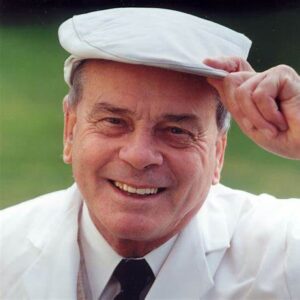 Harold “Dickie” Bird: A Cricketing Legend
Harold “Dickie” Bird: A Cricketing Legend
Full name: Harold Dennis Bird
Born: 19 April 1933, Barnsley, West Riding of Yorkshire, England
Died: 22 September 2025 (aged 92) Reuters+3Wikipedia+3The Guardian+3
Early Life and Playing Career
Dickie Bird was born in Barnsley and grew up in a working-class environment. His early years were strongly tied to Yorkshire cricket. Wikipedia+1
He played first-class cricket (for Yorkshire and later Leicestershire) primarily as a batsman, and also bowled off-spin. However, his playing career was interrupted and eventually curtailed by injury. Wikipedia
Transition to Umpiring
Following his playing days, Bird became an umpire. His umpiring debut in Test cricket came in 1973. Wikipedia+1
Over his umpiring career, he presided over 66 Test matches and 69 One-Day Internationals (ODIs). Wikipedia+1
He was well-known not just for his competence but also for his personality: fair, witty, with a very strong love for the game. The Guardian+1
Accomplishments and Legacy
Bird umpired in three World Cup finals, which is a major achievement for any umpire. The Guardian+2Wikipedia+2
He was honored with MBE (Member of the Order of the British Empire) in 1986, then later OBE (Officer of the British Empire). The Guardian+1
He became President of Yorkshire County Cricket Club in 2014. Under his symbolic leadership, Yorkshire continued to be an important institution in English domestic cricket. The Guardian+1
Outside the field, he was an author (memoirs, cricket anecdotes) and a popular speaker. People remember not just his decisions but his stories, his character, and the respect he had earned. The Guardian+1
Recent News
Dickie Bird passed away on 22 September 2025, at the age of 92. The Guardian+3The Guardian+3Reuters+3
His passing was marked by tributes from across cricket and sports circles, not just for what he did on the field, but for how he did it—with fairness, humour, grace, and dedication. The Guardian+2The Guardian+2
Why He Matters
Dickie Bird’s significance to cricket goes beyond stats. He represents:
Integrity and Fairness — In an era before many of today’s technologies, umpires had to rely heavily on instinct, character, trust. Bird was widely respected for doing so with minimal controversy.
Personality in the Game — His mannerisms, his storytelling, his way of interacting with players and fans made him a beloved figure.
Bridging Eras — He spanned decades of change in cricket: from the 1970s through to the 1990s, seeing the game become global, commercial, and more technologically supported.
Cultural Icon — Especially in Yorkshire, but in all of England and internationally too, as someone who stood for tradition, love of the sport, and connection with ordinary people.